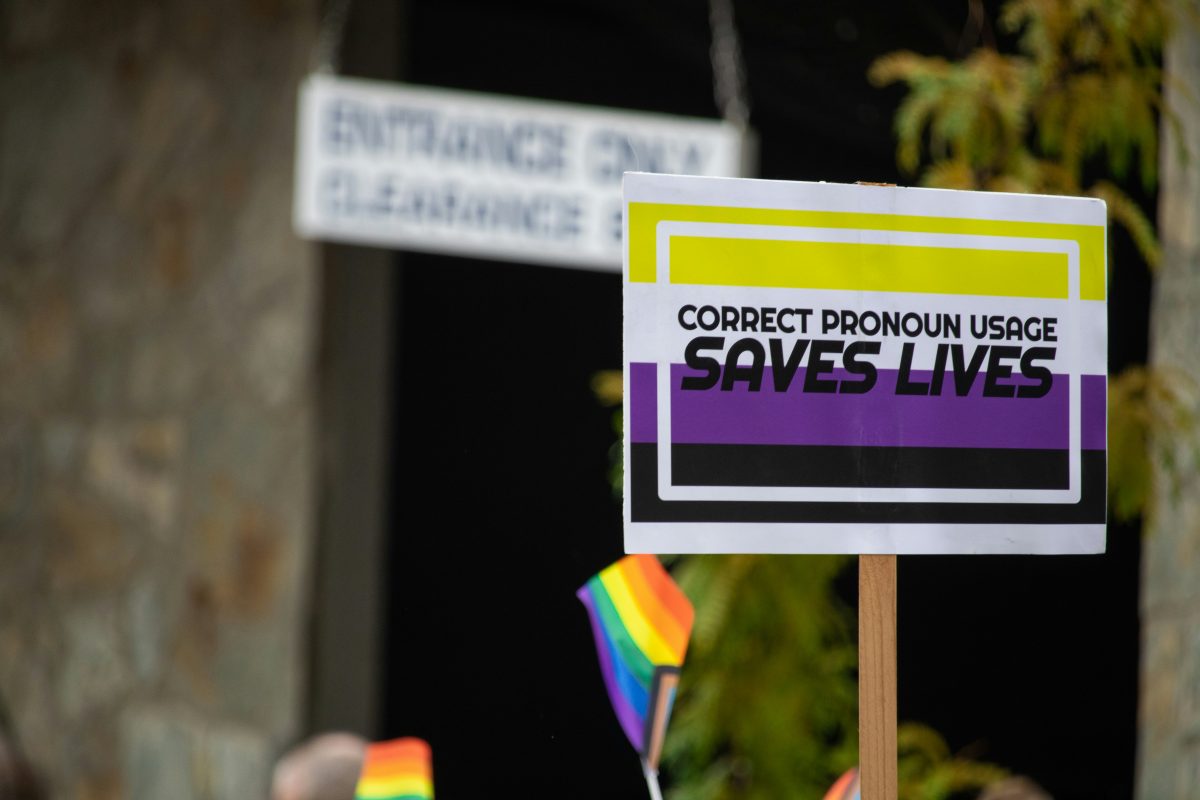Nonbinary and gender-nonconforming teachers, students, employees, and more are seeing increased efforts by the Tennessee General Assembly to block the ability to express their gender identity.
During this year’s legislative session, lawmakers passed a bill that allows people to refuse to acknowledge someone by their nonbinary pronouns or name in school settings. In the past, a similar bill was passed in 2023 that allows teachers to not use a student’s pronouns.
A policy brief by the Tennessee Equality Project (TEP) and Human Rights Campaign (HRC) showed that these “pronoun laws” encourage harassment, bullying, and discrimination “in the name of ‘free speech.’”
“Regardless of legislation, legal limitations, and anticipated litigation, people deserve the respect of others to do something as simple as using their name and pronouns,” the brief said.
As these individuals represent a marginalized community, they are often victim to discrimination, harassment, and violence. The document said that recognizing a person’s pronouns and nonconforming identity can have a profound effect on their mental and physical health.
“Persistently misgendering and deadnaming transgender youth, students, teachers, and employees is common and distressing,” the brief said. “It is harmful and intentionally used to embarrass and shame them into silence.”
The brief said students facing this kind of discrimination face heightened levels of anxiety, depression, suicidality, and more.
A common defense for misgendering is under the notion of “free speech” and religious freedom, with courts protecting an employee or student’s right to refuse pronoun usage. The brief calls these actions “targeted harassment” and “isolating.” It also condemns states that use religion as a way to justify these practices.
The passage of Tennessee’s “pronoun bills” adds to the slew of policies aimed at LGBTQ residents. According to the brief, the state has passed 20 anti-LGBTQ laws since 2016. There are also no legal protections on the basis of harassment for transgender and gender-nonconforming individuals.
These policies also pose a risk to student and employment privacy. TEP and the HRC called requiring these individuals to disclose their employee records and medical documents that show their sex assigned at birth, name changes, and medical treatments “harmful.”
While schools and institutions receiving federal funding must comply with non-discriminatory practices and “privacy laws” to receive funding, these laws do not provide “clear enforcement” on guidelines for physical exams and other requirements for attendance or employment.
“Pronoun laws appear to permit any school official to make non-consensual disclosure about transgender and gender-nonconforming students to anyone with a ‘legitimate educational interest’ related to their professional duties,” the brief said.
Disclosing this information to staff and administration poses a threat, but it also opens the door for making schools “less safe and more hostile.” The report points to schools and Title IX coordinators, as they are “legally responsible” to intervene in sexual harassment and misconduct behavior.
Tennessee’s location in the South also poses a threat to LGBTQ teachers and staff — even if civil rights protections are in place, the study said. Many face the fear of discrimination and retaliation from parents and colleagues for disclosing their identity.
“Teachers struggle, and faculty in certain fields of study are more likely to experience harassment, burnout, social exclusion, unsupportive working environments, the absence of role models, and biased stereotypes,” the document added.
The brief concluded that pronoun laws leave the state subject to “numerous privacy violation claims,” increased harassment practices, and discriminatory practices.
